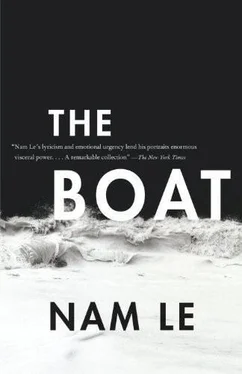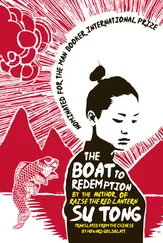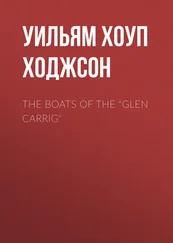The circle had gone quiet. My mother came out from the kitchen, squatted behind my father, and looped her arms around his neck. This was a minor breach of the rules. "Heavens," she said, "don't you men have anything better to talk about?"
After a short silence, someone snorted, saying loudly, "You win, Thanh. You really did have it bad!" and then everyone, including my father, burst out laughing. I joined in unsurely. They clinked glasses and made toasts using words I didn't understand.
Maybe he didn't tell it exactly that way. Maybe I'm filling in the gaps. But you're not under oath when writing a eulogy, and this is close enough. My father grew up in the province of Quang Ngai, in the village of Son My, in the hamlet of Tu Cung, later known to the Americans as My Lai. He was fourteen years old.
***
LATE THAT NIGHT, I plugged in the Smith Corona. It hummed with promise. I grabbed the bottle of Scotch from under the desk and poured myself a double. Fuck it , I thought. I had two and a half days left. I would write the ethnic story of my Vietnamese father. It was a good story. It was a fucking great story.
I fed in a sheet of blank paper. At the top of the page, I typed "ETHNIC STORY" in capital letters. I pushed the carriage return and scrolled down to the next line. The sound of helicopters in a dark sky. The keys hammered the page.
***
I WOKE UP LATE THE NEXT DAY. At the coffee shop, I sat with my typed pages and watched people come and go. They laughed and sat and sipped and talked and, listening to them, I was reminded again that I was in a small town in a foreign country.
I thought of my father in my dusky bedroom. He had kept the door closed as I left. I thought of how he had looked when I checked on him before going to bed: his body engulfed by blankets and his head so small among my pillows. He'd aged in those last three years. His skin glassy in the blue glow of dawn. He was here, now, with me, and already making the rest of my life seem unreal.
I read over what I had typed: thinking of him at that age, still a boy, and who he would become. At a nearby table, a guy held out one of his iPod earbuds and beckoned his date to come around and sit beside him. The door opened and a cold wind blew in. I tried to concentrate.
"Hey." It was Linda, wearing a large orange hiking jacket and bringing with her the crisp, bracing scent of all the places she had been. Her face was unmaking a smile. "What are you doing here?"
"Working on my story."
"Is your dad here?"
"No."
Her friends were waiting by the counter. She nodded to them, holding up one finger, then came behind me, resting her hands on my shoulders. "Is this it?" She leaned over me, her hair grazing my face, cold and silken against my cheek. She picked up a couple of pages and read them soundlessly. "I don't get it," she said, returning them to the table. "What are you doing?"
"What do you mean?"
"You never told me any of this."
I shrugged.
"Did he tell you this? Now he's talking to you?"
"Not really," I said.
"Not really?"
I turned around to face her. Her eyes reflected no light.
"You know what I think?" She looked back down at the pages. "I think you're making excuses for him."
"Excuses?"
"You're romanticizing his past," she went on quietly, "to make sense of the things you said he did to you."
"It's a story," I said. "What things did I say?"
"You said he abused you."
It was too much, these words, and what connected to them. I looked at her serious, beautifully lined face, her light-trapping eyes, and already I felt them taxing me. "I never said that."
She took a half step back. "Just tell me this," she said, her voice flattening. "You've never introduced him to any of your exes, right?" The question was tight on her face.
I didn't say anything and after a while she nodded, biting one corner of her upper lip. I knew that gesture. I knew, even then, that I was supposed to stand up, pull her orange-jacketed body toward mine, speak words into her ear; but all I could do was think about my father and his excuses. Those tattered bodies on top of him. The ten hours he'd waited, mud filling his lungs, until nightfall. I felt myself falling back into old habits.
She stepped forward and kissed the top of my head. It was one of her rules: not to walk away from an argument without some sign of affection. I didn't look at her. My mother liked to tell the story of how, when our family first arrived in Australia, we lived in a hostel on an outer-suburb street where the locals — whenever they met or parted — hugged and kissed each other warmly. How my father — baffled, charmed — had named it "the street of lovers."
I turned to the window: it was dark now, the evening settling thick and deep. A man and woman sat across from each other at a high table. The woman leaned in, smiling, her breasts squat on the wood, elbows forward, her hands mere inches away from the man's shirtfront. Throughout their conversation her teeth glinted. Behind them, a mother sat with her son. "I'm not playing," she murmured, flipping through her magazine.
"L," said the boy.
"I said I'm not playing."
***
HERE IS WHAT I BELIEVE: We forgive any sacrifice by our parents, so long as it is not made in our name. To my father there was no other name — only mine, and he had named me after the homeland he had given up. His sacrifice was complete and compelled him to everything that happened. To all that, I was inadequate.
At sixteen I left home. There was a girl, and crystal meth, and the possibility of greater loss than I had imagined possible. She embodied everything prohibited by my father and plainly worthwhile. Of course he was right about her: she taught me hurt — but promise too. We were two animals in the dark, hacking at one another, and never since have I felt that way — that sense of consecration. When my father found out my mother was supporting me, he gave her an ultimatum. She moved into a family friend's textile factory and learned to use an overlock machine and continued sending me money.
"Of course I want to live with him," she told me when I visited her, months later. "But I want you to come home too."
"Ba doesn't want that."
"You're his son," she said simply. "He wants you with him."
I laundered my school uniform and asked a friend to cut my hair and waited for school hours to finish before catching the train home. My father excused himself upon seeing me. When he returned to the living room he had changed his shirt and there was water in his hair. I felt sick and fully awake — as if all the previous months had been a single sleep and now my face was wet again, burning cold. The room smelled of peppermint. He asked me if I was well, and I told him I was, and then he asked me if my female friend was well, and at that moment I realized he was speaking to me not as a father — not as he would to his only son — but as he would speak to a friend, to anyone, and it undid me. I had learned what it was to attenuate my blood but that was nothing compared to this. I forced myself to look at him and I asked him to bring Ma back home.
"And Child?"
"Child will not take any more money from Ma." "Come home," he said, finally. His voice was strangled, half swallowed.
Even then, my emotions operated like a system of levers and pulleys; just seeing him had set them irreversibly into motion. "No," I said. The word shot out of me.
"Come home, and Ma will come home, and Ba promises Child to never speak of any of this again." He looked away, smiling heavily, and took out a handkerchief. His forehead was moist with sweat. He had been buried alive in the warm, wet clinch of his family, crushed by their lives. I wanted to know how he climbed out of that pit. I wanted to know how there could ever be any correspondence between us. I wanted to know all this but an internal momentum moved me, further and further from him as time went on.
Читать дальше











